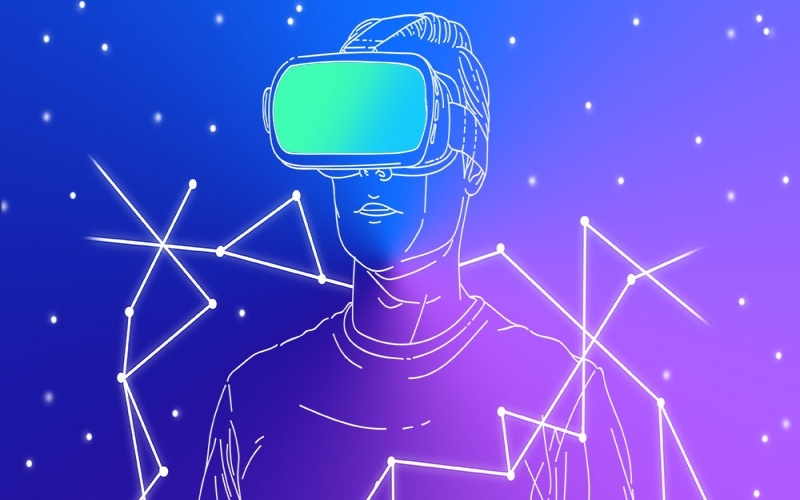Gambling Insider’s May/June issue focuses on AI’s work and skill development role. It highlights how AI is helpful, like transcription software used in writing articles. Yet, it could be more flawless. For instance, it often misinterprets “Hi there, Tim Poole” as “Temple.” The issue delves into AI’s influence in the gambling industry, enhancing operations in sportsbooks, casinos, and companies like 22bet without replacing human workers. The main question is whether AI is advancing business technology. Or is it diminishing human skills? The discussion includes insights from industry players like OPTX. They specialize in AI for land-based casinos. Sportradar is another company. They focus on online sports betting and data.
The Godfather of AI
AI has been a hot topic in movies like “The Terminator” and “The Matrix.” Recently, Geoffrey Hinton expressed regret about his work. He is a key figure in AI development. He said it led to systems like ChatGPT. He’s concerned about controlling AI’s growth. In the gambling industry, AI’s impact is significant. We talked to Steve Bright from OPTX about AI possibly affecting human jobs. For example, writers rely on tools like Grammarly or ChatGPT. They think these can fix their errors. Bright finds this reliance by English graduates attractive. The debate continues on AI’s benefits versus its impact on human skills.
Different skilling
Steve Bright from OPTX shares his views on AI’s impact on skills. He compares AI’s role to calculators in math. He suggests it might change basic writing skills. Meanwhile, humans could focus more on emotional connections. He’s curious about AI in creative areas like humor and music. Bright ponders how advanced AI must be to replace human-made entertainment. He’s concerned that AI could lead to less intellectual engagement, with people preferring AI-generated content. Yet, Bright believes many will still seek intellectual and creative experiences. To view it, AI isn’t deskilling but altering the nature of skills required.
Very Difficult, Very Valuable
Steve Bright from OPTX discusses recent ChatGPT headlines, highlighting its diverse impacts. ChatGPT faced a ban over privacy concerns in Italy. Meanwhile, a company named Mobeon appointed a ChatGPT-based AI as CEO. The first AI-driven podcast launched. Bright notes: countries like the UK and the US are far from banning ChatGPT. They find the AI CEO idea intriguing. But, they wonder who would execute the AI CEO’s decisions.
Bright explains that AI in casinos does not replace skills but enhances them. At OPTX, they use AI to analyze and improve casino operations. For example, they predict the impact of moving slot machines. Their AI acts more like a co-pilot, automating mundane tasks and offering recommendations, but it can sometimes be better due to imperfect data. “The key,” he says, “is transforming diverse data into a unified format for AI. This makes it a valuable but nuanced tool.”
Stay Caught Up
Sportradar’s White Paper and SVP Darren Small highlight AI’s growing role in sports betting. AI is changing sports betting traders’ roles, enhancing rather than replacing them. Sportradar’s survey found that 71% of operators see AI as a game-changer in the industry. They acquired AI company Vaix to focus on personalization, which is seen as a key area for innovation. AI improves betting experiences by studying player habits and boosting marketing. It helps send more relevant messages, bonuses, and betting tips. This makes customers more interested and likely to keep betting. They get offers and content they enjoy.
Micro on a macro level
Sportradar’s application of AI in sports betting enhances, not replaces, human labor. Traders use AI for better decision-making, but they still control trading. AI helps in risk management and player profiling. It offers more accurate odds in real-time by analyzing historical data. This reduces risk for operators, increases betting activity, and allows for better pricing and higher margins. AI doesn’t take jobs; it supports operators in setting odds. Darren Small of Sportradar notes that AI is crucial for managing millions of accounts. It reduces risk and increases profit per transaction. In essence, AI provides valuable help in the sports betting industry. It handles complex tasks.
Final Thoughts
Gambling Insider concludes from Optx and Sportradar’s insights that AI is not “deskilling” workers in the gambling industry. Instead, it’s about “different skilling.” AI isn’t taking jobs away but is changing how jobs are done, requiring adaptation. AI can handle basic tasks efficiently. Yet, it can’t replace the human ability to connect with audiences. This human touch is a key driver in gambling industries like sportsbooks and casinos. This emotional connection is vital for sales and customer engagement. AI can’t replicate it. The industry must stay adaptable and use AI as a tool for help rather than replace human skills.

